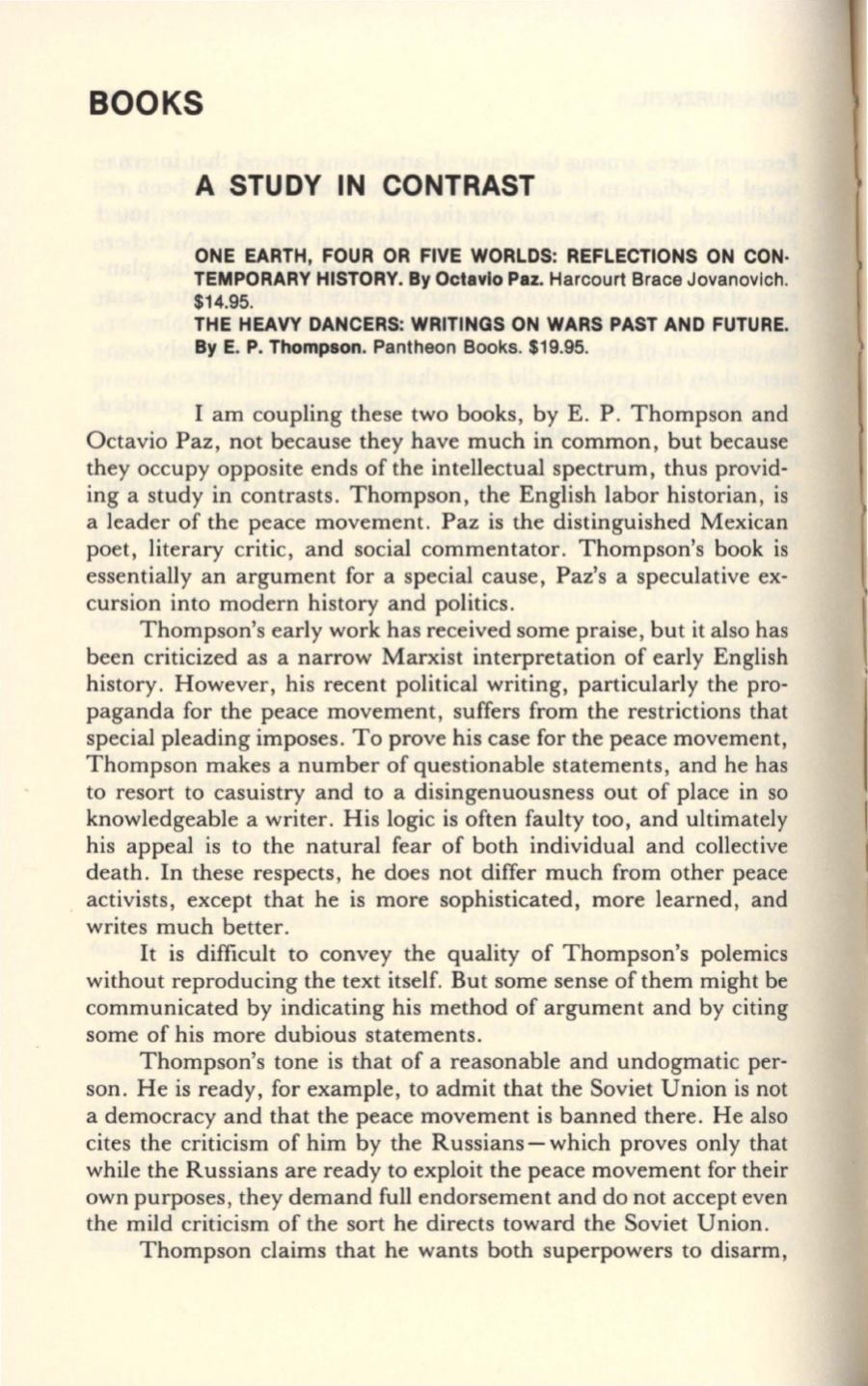
BOOKS
A STUDY IN CONTRAST
ONE EARTH, FOUR OR FIVE WORLDS: REFLECTIONS ON CON·
TEMPORARY HISTORY.
By
Octavlo Paz. Harcourt Brace Jovanovich.
$14.95.
THE HEAVY DANCERS: WRITINGS ON WARS PAST AND FUTURE.
By
E. P. Thompson. Pantheon Books. $19.95.
I am coupling these two books, by E. P. Thompson and
Octavio Paz , not because they have much in common, but because
they occupy opposite ends of the intellectual spectrum, thus provid–
ing a study in contrasts. Thompson, the English labor historian, is
a leader of the peace movement. Paz is the distinguished Mexican
poet, literary critic, and social commentator. Thompson's book is
essentially an argument for a special cause, Paz's a speculative ex–
cursion into modern history and politics.
Thompson's early work has received some praise, but it also has
been criticized as a narrow Marxist interpretation of early English
history. However, his recent political writing, particularly the pro–
paganda for the peace movement, suffers from the restrictions that
special pleading imposes. To prove his case for the peace movement,
Thompson makes a number of questionable statements, and he has
to resort to casuistry and to a disingenuousness out of place in so
knowledgeable a writer. His logic is often faulty too, and ultimately
his appeal is to the natural fear of both individual and collective
death . In these respects, he does not differ much from other peace
activists, except that he is more sophisticated, more learned , and
writes much better .
It
is difficult to convey the quality of Thompson's polemics
without reproducing the text itself. But some sense of them might be
communicated by indicating his method of argument and by citing
some of his more dubious statements.
Thompson's tone is that of a reasonable and undogmatic per–
son. He is ready, for example, to admit that the Soviet Union is not
a democracy and that the peace movement is banned there. He also
cites the criticism of him by the Russians - which proves only that
while the Russians are ready to exploit the peace movement for their
own purposes, they demand full endorsement and do not accept even
the mild criticism of the sort he directs toward the Soviet Union.
Thompson claims that he wants both superpowers to disarm,


